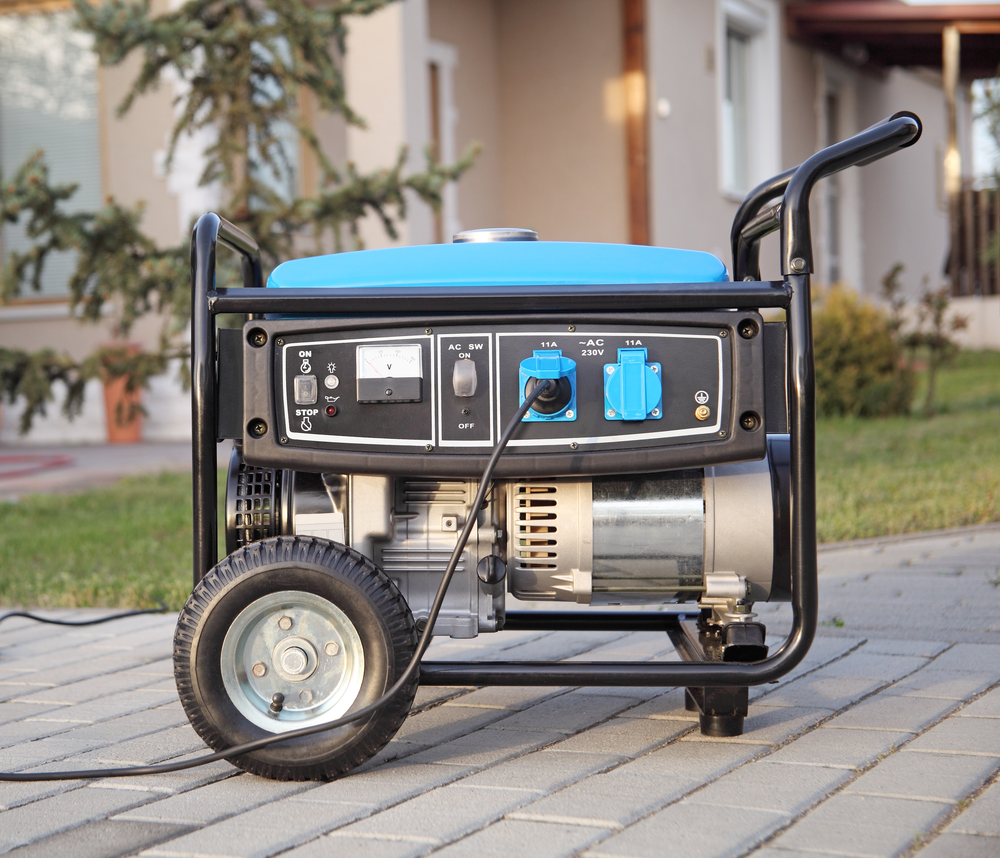Last Updated on April 16, 2023 by admin_hunter
A 7500 watt generator can provide enough power to run many electrical devices in a house during an outage. However, this will depend on the number of appliances you need to be powered and how much they each use.
To determine this, you can make a list of all the electrical appliances you want to be powered and add up their total wattage. Then you can calculate how many watts the generator will need to start them up and keep them running.
Power for the Whole House
A 7500 watt generator is ideal for powering the electrical devices in a house during extended power outages. It can run the majority of household appliances and even a few large ones, like a refrigerator or a water heater.
It can also power the lights in your home and the sump pump. And if your house has a window air conditioner or space heater, it will be able to keep that running.
You can easily figure out what kind of generator you need by figuring out how many appliances and equipment you’ll need to run during an emergency and how much wattage each appliance consumes. For example, a light bulb needs about 60-watts to run. So, if you have 125 of these bulbs in your home, a generator with at least 7500 watts should be able to power all of them without any problem.
The best thing about a generator is that it can run for very long periods of time at high power, so you don’t have to worry about having to stop and refuel during a prolonged outage. Top quality generators should be able to run for at least eight hours at a time.
They will also automatically switch on when the power goes out, so your family won’t have to leave the comfort of your own home or wake up in the middle of the night to go refuel the machine. Some also have remote monitoring capabilities through smart phone apps, so you can be notified when the power goes out no matter where you are.
This is a good feature for the people who live in rural areas or in remote locations where power outages are common. It will give them the peace of mind they need to sleep in their own home for as long as possible.
It’s also a great way to save money on gas since they can be operated for very long periods of time at high power. The best generators will be fuel efficient and will deliver a kilowatt-hour per gallon value that is higher than most of the other options.
Power for the Refrigerator
During an extended power outage, you’ll want to be sure your refrigerator, well pump/sump pump and lights are all running. A 7,500 watt generator will be able to handle the task. The good news is that you can also run a window air conditioner or space heater to keep your house at a comfortable temperature while the power is out.
To decide if a 7500 watt generator is right for you, it’s best to first make a list of the household essentials, including your television, refrigerator, microwave, and coffee maker. Then, take a close look at the power requirements of each device. This will help you pick the generator that’s most likely to deliver your power needs in an emergency.
The generator industry is a big one, with several types of devices being made to cater to your unique power needs. Some are more innovative than others, so it’s important to be sure you’re getting the best.
For example, you might want to opt for a portable, high-powered model like the Westinghouse 7500 watt generator that can be moved around your property quickly and easily. Its small size makes it ideal for those averse to heavy machinery, and it’s designed to be as efficient as possible, minimizing fuel consumption and noise output.
In the end, what you need most is a high-quality, durable model that’s built to last. The best generators will have a metallic and sturdy overall design with a powerful engine that’s protected from extreme weather conditions. This includes a stainless steel sleeve and a powder-coated cast iron plate, which will help extend its lifespan.
Power for the Hot Water Heater
A 7500 watt generator is a good size to run your refrigerator, lights, sump pump, and other appliances during a power outage. It can also keep your air conditioning and heating system running if you have a ductless heat pump or central HVAC unit.
It’s important to remember that a 7500 watt generator will not be sufficient to run the water heater, which requires much more wattage than any other appliance. Moreover, you should only buy a generator that is compatible with your specific model of water heater.
Most generators will need to be plugged into a transfer switch that connects directly to your furnace. If you don’t have a transfer switch, contact an electrician to install one before you try connecting your generator.
Another option is to use a power transfer panel, which can be found at your local home improvement store. It will allow you to transfer a 240V circuit from your generator into your house. This will then feed electricity into your furnace and other electrical appliances.
You will need to calculate the total wattage of each appliance in your home before you purchase a generator. This will help you determine the right wattage for your home and which appliances require more or less power.
When calculating the wattage of your appliances, you should also take into account the amount of start-up current that each device requires. For example, if you have a sump pump, it requires a lot more startup power than your fridge or air conditioner.
For these reasons, it is best to use a generator that has at least 4,000 watts of continuous power. You can add more wattage if you need to run a heating or air conditioning system.
If you are looking for a more powerful generator, you may want to consider purchasing a 10,000 watt generator. However, this is rare and usually only necessary for larger homes with a well pump or other large equipment.
A 5,000 to 6500 watt generator is generally sufficient for most homes. It will provide enough power to keep your refrigerator, lights, and sump pump up and running for a few hours, while you do your laundry and charge your cell phone. In addition, it will provide enough power to run your laptop and TV if you need to. You can also use a generator to keep your window air conditioner or space heater going for a few days if needed.
Power for the Lights
If you’re planning on running a lot of lights during an outage, you’ll need a generator that can do the job. A 7,500 watt generator is the perfect size for powering most of the things that you’ll need during an outage.
Let’s take a look at the list of typical home appliances and what they typically use in watts. This list will give you a good idea of what you can expect from a 7500 watt generator.
Incandescent light bulbs need about 60 watts to operate, while fluorescent and LED lighting uses around 50 watts per bulb. A 7500 watt generator can power about 125 of these light bulbs.
While this might not sound like a lot, it’s still an impressive feat when you consider that a lot of homes have more than one of these bulbs. A 7,500 watt generator can power a whole house’s worth of lights, and that’s not even counting all of the other things you might want to run at once (like a television or laptop).
The key is to make sure that you pick a model that can handle your load without breaking a sweat. To do this, look for a model with a long lifespan and a heavy-duty overall design.
This should include a sturdy frame and a fold-down handle for easy portability. It should also have a clean and neat layout on the control panel. It should come with a handful of outlets, including a NEMA outlet and a 120/240 volt AC receptacle.
Another important feature is the ability to run on different types of fuel. Most modern generators are dual-fuel, so you can choose whether to use gasoline or propane to run them. Generally, gas-powered models are better at producing a high output.
To help you make a decision, we’ll show you some of the most popular models that have received high ratings in our product reviews. This will allow you to easily compare them against each other so that you can find the best possible fit for your needs.

